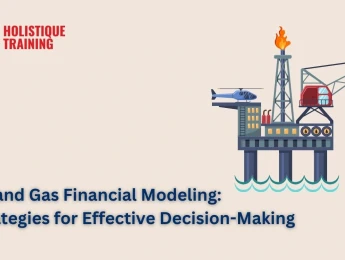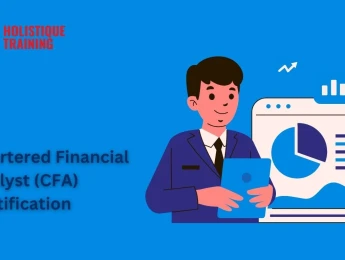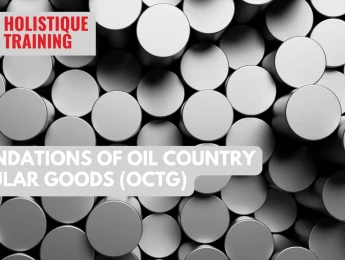This advanced course offers a comprehensive understanding of accounting and finance within the oil and gas industry. Participants will gain insights into industry-specific financial practices, explore strategies for managing financial risk, and develop skills to analyse and report financial performance. The course combines theoretical knowledge with practical applications, equipping finance professionals to navigate the complexities of the oil and gas sector effectively.
By the end of this course, participants will:
- Understand the unique financial and accounting practices in the oil and gas industry.
- Develop skills in financial analysis and reporting specific to the sector.
- Learn strategies for managing financial risks and uncertainties.
- Explore the impact of global financial markets on the oil and gas industry.
- Enhance their ability to make informed financial decisions and improve financial performance.
This course is intended for:
- Financial analysts and accountants in the oil and gas industry
- Financial managers and controllers
- Project managers and executives in the energy sector
- Auditors and compliance officers
- Graduate students in finance, accounting, and related fields
The course employs a blend of instructional methods, including:
- Interactive lectures
- Hands-on financial analysis exercises
- Group discussions and case studies
- Expert-led Q&A sessions
- Comprehensive course materials and resources
Day 5 of each course is reserved for a Q&A session, which may occur off-site. For 10-day courses, this also applies to day 10
Section 1: Fundamentals of Oil and Gas Accounting
- Overview of the oil and gas industry
- Key accounting principles and standards
- Financial statements and reporting requirements
Section 2: Cost Management and Budgeting
- Cost structures in the oil and gas industry
- Budgeting techniques and capital expenditure planning
- Managing operational and capital costs
Section 3: Financial Analysis and Performance Measurement
- Techniques for financial analysis in the oil and gas sector
- Key performance indicators (KPIs) and benchmarking
- Profitability analysis and investment appraisal
Section 4: Risk Management and Financial Strategies
- Identifying and managing financial risks in oil and gas projects
- Hedging strategies and financial instruments
- Financing options and capital structure optimisation
Section 5: Global Markets and Regulatory Environment
- Impact of global financial markets on the oil and gas industry
- Regulatory and compliance issues
- Future trends and emerging challenges in oil and gas finance
- Course review and expert Q&A
Upon successful completion of this training course, delegates will be awarded a Holistique Training Certificate of Completion. For those who attend and complete the online training course, a Holistique Training e-Certificate will be provided.
Holistique Training Certificates are accredited by the British Assessment Council (BAC) and The CPD Certification Service (CPD), and are certified under ISO 9001, ISO 21001, and ISO 29993 standards.
CPD credits for this course are granted by our Certificates and will be reflected on the Holistique Training Certificate of Completion. In accordance with the standards of The CPD Certification Service, one CPD credit is awarded per hour of course attendance. A maximum of 50 CPD credits can be claimed for any single course we currently offer.
Categories
Energy and Oil & Gas,- Course Code IND01 - 140
- Course Format Classroom, Online,
- Duration 5 days













